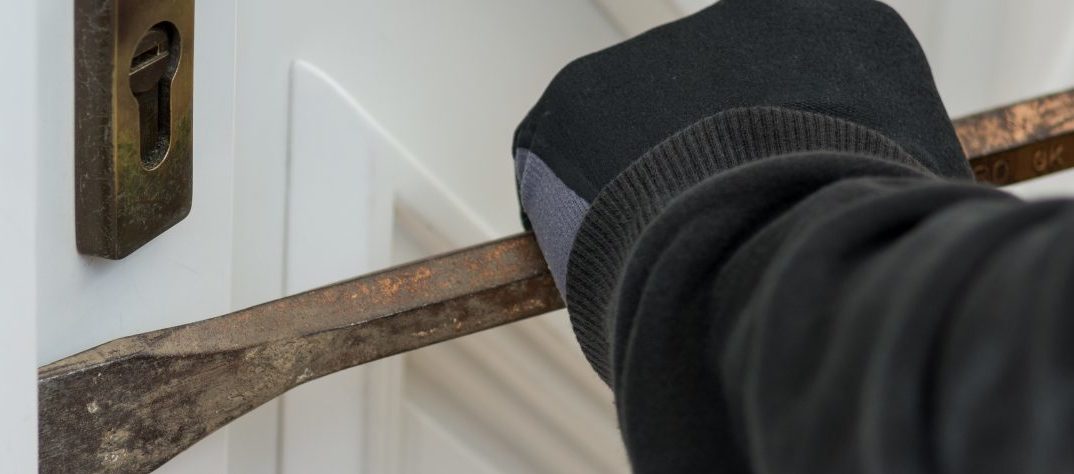Autumn is nature’s signal to begin wrapping up outdoor work and start preparing properties for colder weather. For those who invest in areas with warmer climates, it’s a time to prepare for potential hurricanes. As fall weather rolls in, other non-weather-related threats like theft, vandalism, and fires tend to increase in frequency. Why is that, and what can your investor clients do to diminish vacant property risks as the year winds down?
Fixer Upper Properties
Flippers have to be extra cautious of vacant property risks. Large dumpsters, construction vehicles, etc., make it obvious that the home is empty, and cold weather brings even more risks.
General Contractors
Your investor clients and their general contractors need to prepare for the conditions that colder weather brings. Outdoor work can become more dangerous – it is not a good idea to have a roofer working in freezing ice and snow conditions if avoidable. Here’s where it becomes really important for your investor clients to hire contractors that are properly licensed and insured. In addition to helping any injured crew member get proper medical care, the company or sole proprietor will also have the proper protection to shield their business from undue financial harm that could put finishing the investor client’s project in jeopardy.
Burst Pipes
If the water is on, your investor clients may be at risk of frozen pipes and the water damage that follows if one bursts. We’ve seen too many investors have to restart the rehab process on a recently completed house because they wanted to make sure they could demonstrate a flushing toilet or turn on a faucet for a potential buyer. The best practice is to shut off the water at the street and drain the system whenever a property is vacant. If your investor client must have access to water, they can instead use the house’s main shut-off, keep the heat to at least 55 degrees, and make sure all pipes on exterior walls are insulated.
Squatters
If your investor client has paused construction work or purchased a property they won’t work on until the spring, they are at risk of squatters. People need shelter, and it is not uncommon to see a property burn because someone taking refuge there lit a fire to stay warm. We have also seen houses overtaken by “refugees” of the neighborhood who took advantage of the vacancy to start their own narcotic businesses.
Theft
Theft and vandalism are extremely common at vacant properties. Copper, furnaces, fixtures, uninstalled materials, and contractors’ tools are all enticing to a thief. Some criminals like to break in and vandalize property, which can be just as costly as stolen goods.
Hurricane-Prone Properties
September is the most active month for hurricanes in the Atlantic. While some people have lived through a hurricane before, the magnitude of these storms has made the aftereffects a challenge. Damage from severe weather may displace tenants and cause a multitude of occupied homes to go vacant.
Looting
In times of great distress, like after a hurricane, some people may go after necessities such as toiletries, food, and water, while others will still go after anything of value. We’ve unfortunately seen some of that with recent storms. Stolen goods could be items like stoves, fridges, or even items that renters own.
Insurance Coverage
Named Storm and Flood coverage are not automatically included in most property policies- coverage is typically obtained separately for an additional cost. Your investor clients must become familiar with how those coverages work, especially if they invest out of state.
Rehabs
The renovation process may take longer after a disaster. When many people are immediately in need of the same help putting their properties back together, shortages of materials and skilled labor are common. Your investor clients may have to be patient or get creative to keep their projects from getting too far behind. If your investor clients experience project delays, they should employ extra security measures to keep unwanted guests out.
How to Secure Vacant Properties
The following tips will help your investor clients deter unwanted visitors and decrease risks while the property is vacant.
Vacant Property Signs to Avoid
- Messy/untidy yard
- Overflowing mail
- Darkness
These are all signs that no one is home, and the property is ripe for the picking. The yard should be mowed regularly, with trees and bushes well-kept. If mail gets delivered (even if they are junk ads), the investor client should be sure it gets picked up regularly. The house should be well-lit, especially the entryways. Intruders are less likely to prey on the investor’s property if they sense they may get caught in the act of breaking in.
How to Protect a Vacant Property
- The first line of defense: Deterrence – Your investor clients should ensure their property isn’t the easiest target on the block.
- Locks & Door Reinforcement – Doors & windows should be locked with sturdy hardware and long screws.
- Neighbors – Good relationships with neighbors allow the investor client to have “eyes and ears” around the property.
- Inspections – The investor client should drive by the property regularly to make sure the house is still secure.
- Yard Maintenance – Overgrown shrubbery can give thieves and vandals a place to hide- keep it nice and neat!
- Lighting – The investor client should place motion-detector lights at a height where it’s not easy to disable them.
- Board-up – If the property will be vacant for an extended period, the investor client may consider boarding it up.
- Alarm Systems – Some criminals may move along if they see an alarm system, and your investor client may even get an insurance discount!
Read the Full Article: 8 Great Ways to Protect Vacant & Renovation Properties





